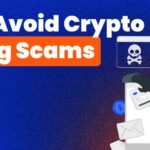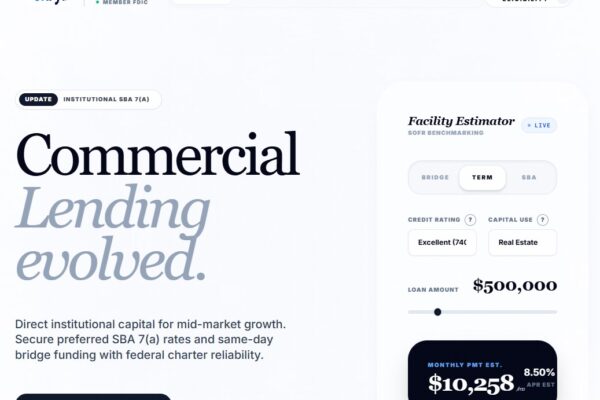Algobuddy.io Review -The Dangers of Unverified Automation
The Siren Call of Hands-Free Riches
In the modern era of retail investment, the most seductive promise is the removal of human error and emotion from the trading equation. This promise is embodied in the proliferation of automated, or “algo-trading,” platforms—systems that claim to harness the raw power of mathematics and high-speed data to generate profits while the user sleeps. The name Algobuddy.io itself immediately triggers this high-tech imagery: a friendly, automated partner (“Buddy”) employing sophisticated algorithms (“Algo”) to navigate the turbulent seas of the global markets.
However, beneath the sleek interface, the dynamic charts, and the persuasive marketing copy, the essential question remains: Is this a legitimate technological breakthrough, or a digital illusion designed to facilitate the rapid extraction of capital? For any savvy investor, the domain suffix itself—the ubiquitous “.io” often favored by tech startups, but frequently used by anonymous or rapidly deployed operations—demands a forensic level of skepticism. This extensive review is dedicated to peeling back the layers of a platform like Algobuddy.io, analyzing its structural vulnerabilities and exposing the universal red flags that should deter any investor from entrusting capital to an unverified automated system.
The Unseen Hand: Dissecting the Algorithmic Claim
The core product of a platform like Algobuddy.io is, by definition, its proprietary algorithm. This is the engine of the operation, the secret sauce that supposedly provides a statistical edge over the rest of the market. Yet, for an investor, this represents the single largest blind spot.
In a legitimate financial services setting, the performance, risk metrics, and methodology of an investment vehicle are rigorously documented, audited by independent third parties, and reviewed by regulators. A fund manager must provide a verifiable track record, disclose their strategy, and present standardized risk-adjusted returns.
An entity operating outside this framework, such as an unverified “Algobuddy” platform, makes unverifiable claims. The user is asked to believe in a “black box” that operates with perfect efficiency. The fundamental dangers here are threefold:
- Proof of Performance: The platform’s advertised returns—the impressive graphs, the daily profit statistics—are displayed on software controlled entirely by the platform itself. Without an independent third-party audit, there is no way to verify that the trades being executed are real, that they occurred on a live exchange, or that the profits shown are anything more than manipulated numbers designed to encourage higher deposits. The entire system could be a simulator, where every user appears to be winning, right up until the point they try to withdraw.
- Risk Disclosure: Automated systems, especially those dealing in high-leverage instruments like Forex or CFDs, carry catastrophic risk. A legitimate firm is mandated to provide clear, upfront warnings about potential capital loss. An unverified “buddy,” however, tends to minimize this risk, using promotional language like “low-drawdown” or “guaranteed stability.” This manipulative risk-downplaying is a classic indicator of a scam-like entity prioritizing user deposits over ethical disclosure.
- The Code Itself: The investor is never shown the underlying code or the rules of the algorithm. This secrecy is justified as “proprietary information,” but it allows the operator to design a program that is mathematically predisposed to generate profits for a short time (to build confidence) before enacting a “wipeout trade” that systematically liquidates the client’s capital, often triggered by a predetermined capital threshold or withdrawal request. The algorithm, in this scenario, becomes a sophisticated mechanism for planned failure.
The Regulatory Silence: A Deafening Warning
As with any platform soliciting investment capital, the lack of verifiable regulatory status is the ultimate death knell for credibility. Financial regulation exists to create a barrier between legitimate operators and those seeking to exploit naive investors.
For a platform like Algobuddy.io to offer financial services—which includes advising on or executing automated trades—it must be licensed and regulated in every major jurisdiction it targets. The absence of a license from a highly respected regulatory body means the platform operates in a state of complete impunity:
- No Investor Protection: Your capital is not held in legally segregated accounts. It is essentially an unsecured loan to an anonymous, foreign entity. If the platform shuts down, the money is gone with no insurance or compensation fund to fall back on.
- No Accountability: If you suspect fraudulent activity, there is no government-backed ombudsman or commission to file a complaint with. Your only recourse is an expensive, often futile, international legal battle against an entity that has strategically shielded its operators behind corporate layers.
- A Strategy of Avoidance: For a globally operating “fintech” entity, the failure to secure even a single recognized license is not an oversight; it is a strategic decision. It allows the platform to bypass mandatory due diligence checks, capital requirements, and strict anti-money laundering (AML) protocols. The regulatory silence is, in fact, the platform’s chosen operational environment—one where it can act without consequence.
The Anonymous Persona: Corporate Opacity and the Shell Game
Transparency of ownership is non-negotiable in finance. An investor must know exactly who holds the ultimate legal and financial responsibility for their deposited capital.
When scrutinizing a platform like Algobuddy.io, one often finds a systematic erasure of corporate identifiers:
- Nameless Leadership: There are no named CEOs, CTOs, or Chief Compliance Officers with traceable LinkedIn profiles, educational credentials, or professional histories in reputable financial institutions. The people allegedly running a multi-million-dollar algorithmic trading firm are ghosts.
- The Virtual Office Address: Any physical address provided is frequently a mail-forwarding service, a shared virtual office, or a generic co-working space in a jurisdiction far removed from where the platform is actively soliciting clients. The platform exists solely in the digital realm, making it impossible to serve legal documents or enforce judgments.
- Generic Documentation: The Terms and Conditions, Privacy Policy, and other legal documents are often boilerplate text, copied and pasted from multiple other non-compliant websites. They are intentionally vague, full of internal contradictions, and heavily biased toward absolving the platform of all responsibility for client losses. In many cases, these terms are so generic that they don’t even specifically mention “Algobuddy.io” by name, suggesting a template used across a network of questionable sites.
This profound corporate opacity serves one purpose: to ensure that the individuals profiting from the operation cannot be legally tracked or held personally responsible when the scheme inevitably collapses.
The Withdrawal Trap: From “Buddy” to Adversary
The true litmus test of a non-legitimate investment platform occurs when the user attempts to realize their supposed profits. As long as money flows in, the experience is smooth. When the user attempts to initiate a withdrawal, the relationship abruptly changes from supportive “buddy” to hostile adversary.
The withdrawal process often unveils the final, desperate stage of the scam-like operational model:
- The Phantom Fee: The platform informs the user that their substantial “profits” are locked due to an unpaid fee—a massive “government tax,” a “mirror trading commission,” or an “algorithmic license upgrade.” This fee, which can amount to 10% to 20% of the entire account value, must be paid separately and upfront by the investor. This is pure extortion, a cynical attempt to extract a final deposit before cutting ties.
- The Forced Re-investment: The account manager, if they are still communicating, demands that the investor re-invest the profits to reach a higher, supposedly more profitable trading tier. They apply intense psychological pressure, framing the withdrawal request as a lack of trust or a foolish decision that will cause the investor to miss out on a massive, impending payout.
- The “System Glitch” and Account Suspension: If the investor refuses to pay the phantom fee, the platform will suddenly report a “system error,” a “server migration,” or an “account security breach.” The user’s account is suspended, access is denied, and all communication ceases. The money, which only ever existed as data points on an unverified dashboard, vanishes.
The fact is that if a platform can generate massive profits, it should be able to deduct any necessary fees from the profit balance before transferring the net amount. Any platform that requires an additional, out-of-pocket deposit to “release” funds is demonstrating a clear priority: the acquisition of new, irreversible capital.
The Prudent Path: A Fundamental Rejection of Risk
The allure of passive, automated income is powerful, but it requires a corresponding level of verifiable security. When evaluating an entity like Algobuddy.io, the absence of key indicators of legitimacy is far more informative than any marketing copy on the website.
The modern digital investment landscape is littered with platforms that mimic legitimate finance but lack the core accountability mechanisms. A platform that operates anonymously, avoids government regulation, and controls both the trading execution and the performance reporting creates a fundamental conflict of interest where the operator’s incentive is maximized, and the investor’s safety is minimized.
The analysis is therefore definitive: Any investor encountering a platform like Algobuddy.io must recognize that they are being presented with a choice between the regulated, accountable market, and an operational vacuum of extreme risk. A responsible financial strategy demands a complete and immediate rejection of any platform that cannot provide verifiable proof of regulatory compliance and corporate transparency from a recognized, tier-one financial authority. In the high-stakes game of algorithmic trading, your “buddy” should never be an anonymous, unregistered black box.
Report Algobuddy.io Scam and Recover Your Funds
If you have lost money to Algobuddy.io Scam, it’s important to take action immediately. Report the scam to Jayen-consulting.com, a trusted platform that assists victims in recovering their stolen funds. The sooner you act, the better your chances of reclaiming your money and holding these fraudsters accountable.
Scam brokers like Algobuddy.io continue to target unsuspecting investors. Stay informed, avoid unregulated platforms, and report scams to protect yourself and others from financial fraud.
Stay smart. Stay safe.






